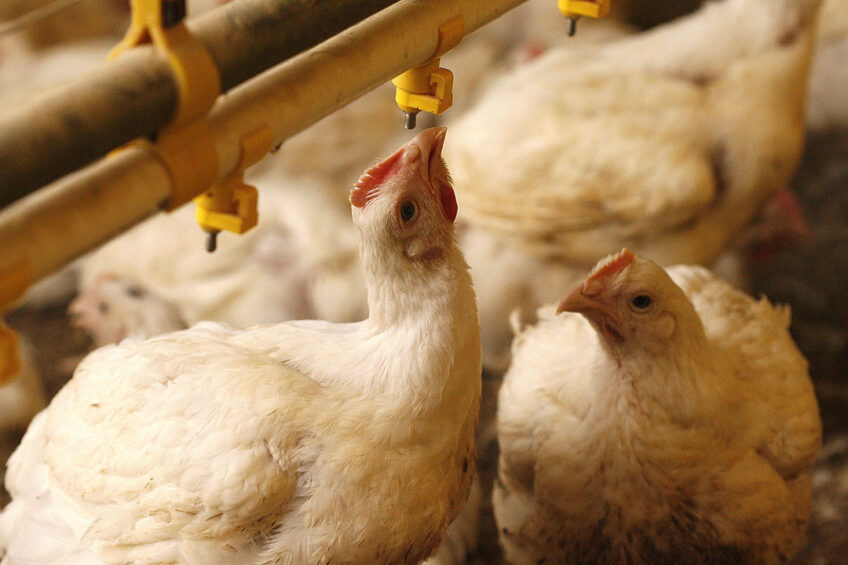Shifting UK poultry meat towards slower-growing breeds

Research is underway at the UK’s Royal Veterinary College (RVC) to provide a comprehensive analysis of the impacts of opportunities for and barriers to moving UK chicken meat production towards better welfare broiler breeds.
Selection for fast growth has greatly increased the efficiency of broiler production, leading to the most widely consumed affordable protein across the globe. But multiple breed comparison studies have shown that slower-growing broilers have better welfare outcomes in terms of both health and natural behaviour than traditional fast-growing breeds.
This has led to campaigns for producers to shift towards meeting the Better Chicken Commitment standards, but the RVC says that the vast majority of UK production (95%) still relies on fast-growing breeds. Only a few broiler breeder companies can undertake breeding for better welfare, but to achieve real world effect this must be driven by industry demand.
Environmental, economic and consumer responses
A major barrier, according to the RVC, to switching to slower growing breeds is the lack of clear information on the holistic implications for UK Sustainable Agriculture, in which animal welfare plays only one important part. This includes poor understanding of the collective environmental, economic and consumer responses to slower-growing broiler breeds.
Analysis in the public domain from industry bodies suggests substantial economic and environmental costs associated, due to larger rearing periods, higher feed conversion costs and lower yields, which all require additional land usage. However, the potential offset with improved welfare has been examined with only limited welfare outcomes. Critically, how consumers prioritise environmental and animal welfare attributes of broiler products remain unknown, making adoption of ‘Better Breeds’ high risk for many producers without further information.
Study into the perspectives of slower-growth chickens
The Royal Veterinary College Animal Welfare Science and Ethics research centre is aiming to draw together and expand on the disparate and patchy information available to date on the UK context. Led by Siobhan Abeyesinghe, associated professor in Animal Behaviour and Welfare Science, a team of researchers will look at the drivers of the adoption of the Better Chicken Commitment and analyse different stakeholder perspectives on the implementation of slower-growth chickens. It will focus on views on potential trade-offs between environmental impacts, animal welfare and cost.
Previous UK economic analysis in this area will be refined and extended using its existing welfare, antibiotic-used and production data from the main UK conventional (Ross 308) and slower-growing (Hubbard JA lines) breeds and incorporating greater assessment of externalities such as carbon dioxide, biodiversity, and consumer impacts.
Using this information, the team will produce an integrated assessment model, incorporating stakeholder input, to obtain preliminary estimates for key scenarios and impacts relevant to both producers and society.
What will the impact be?
An additional 5% transition of conventional producers to the slower-growing breeds would translate to a replacement of around 50 million conventional birds to higher welfare birds in the UK per year. However, the veterinary profession has incomplete evidence to advise producers and policymakers on the adoption of higher welfare breeds with consumer acceptable credentials that have the least detrimental environmental footprint and impact on performance.
Information provided by the project may increase farmers’ confidence in breed selection and house investment. And, given that the association between welfare outcomes and growth rates is not absolute, the findings will support dialogue with global breeding companies on opportunities for selecting for both high welfare and reasonable growth to produce more widely-accepted breeds.
The RVC-led study is in collaboration with the London School of Hygiene and Tropical Medicine, Slate Hall Veterinary Practice, and the British Poultry Council with funding from the BPC and the Animal Welfare Foundation.
Join 31,000+ subscribers
Subscribe to our newsletter to stay updated about all the need-to-know content in the poultry sector, three times a week. Beheer
Beheer











 WP Admin
WP Admin  Bewerk bericht
Bewerk bericht